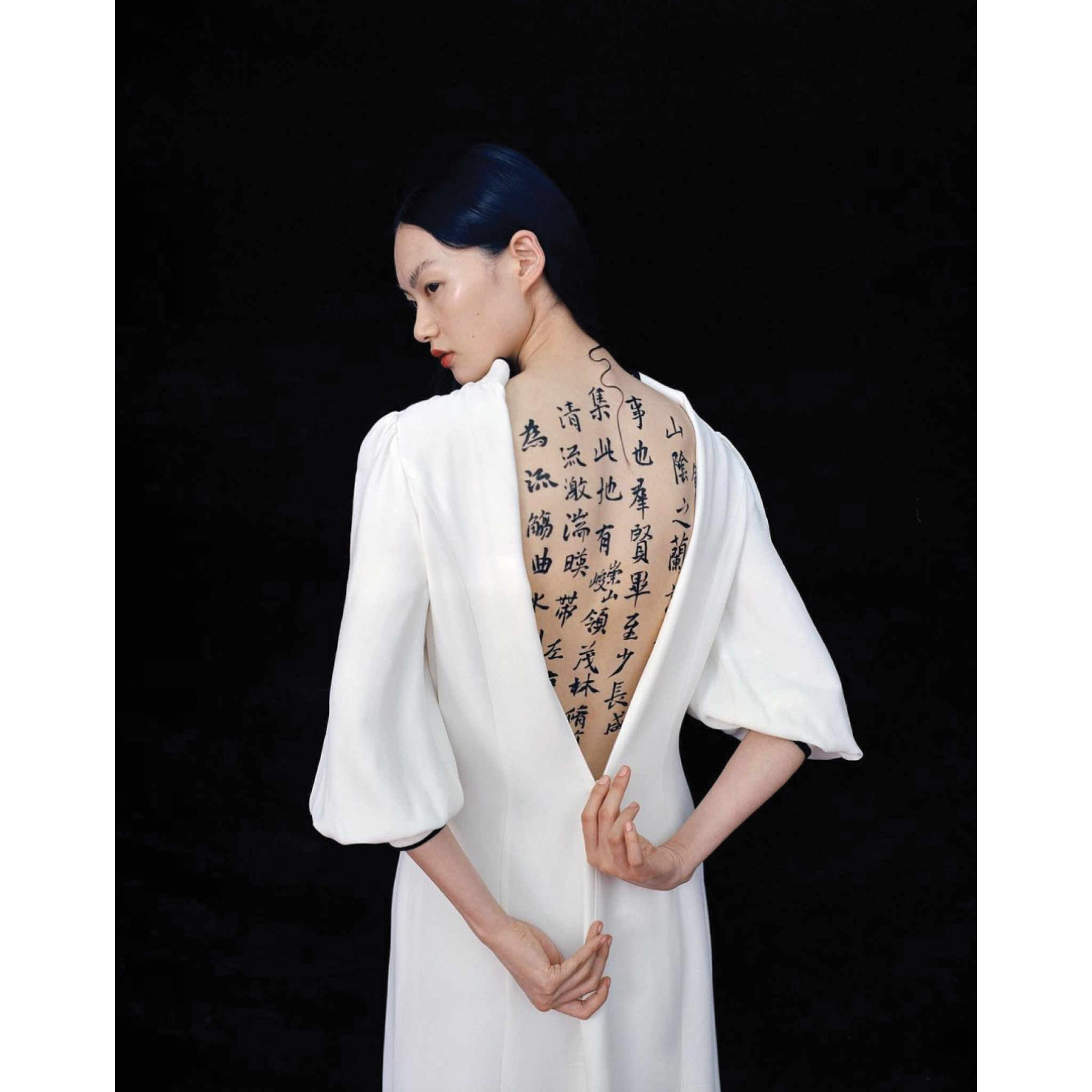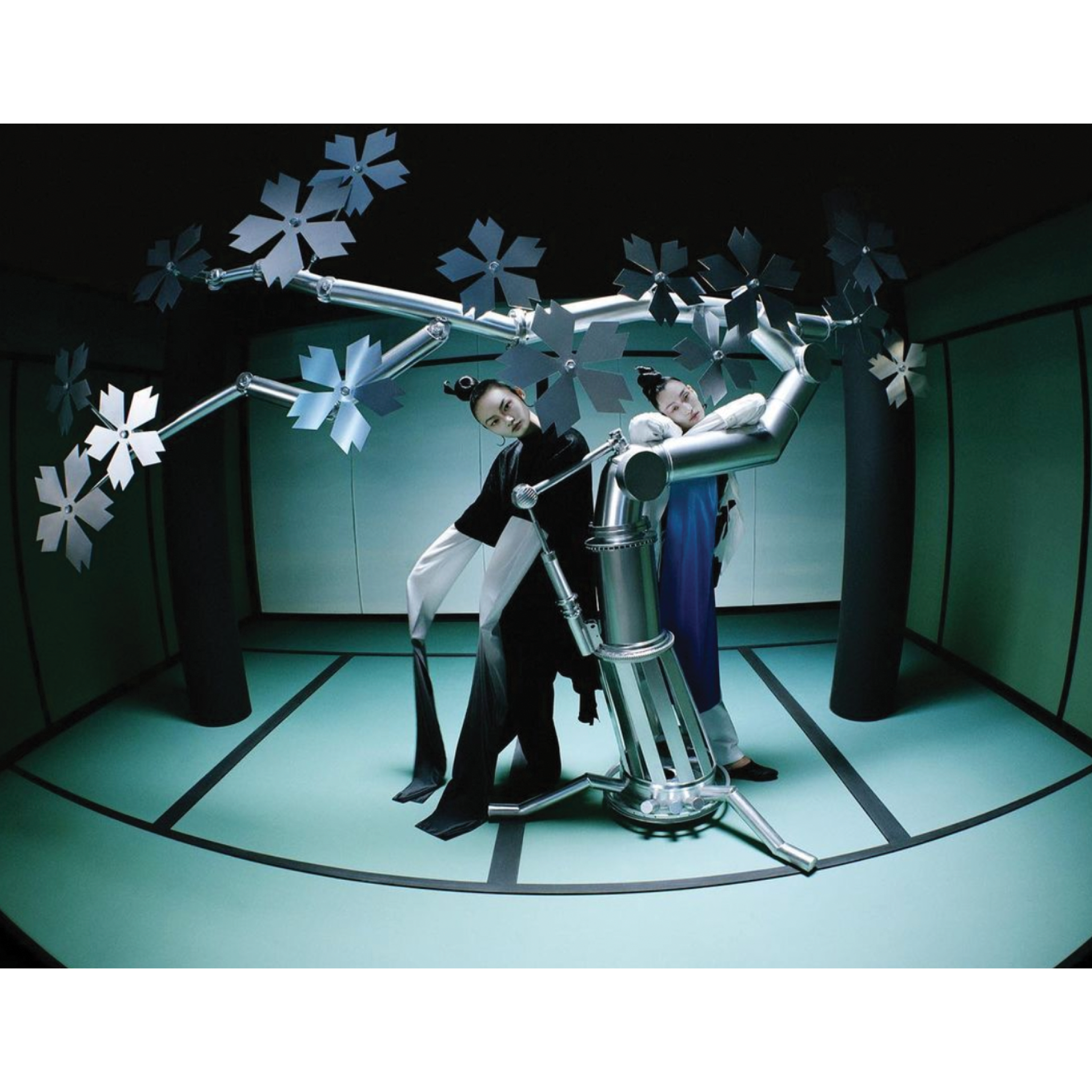Leslie Zhang and His Interpretation of Reality
We are all connected through the little things: exchanging grins with those who make our coffee in the morning, saving seats for our classmates as we wait their arrival, and even the simplicity of sending a comedic social media post to a friend with the message, “'this reminded me of you.” Such instances and encounters reach into our lives like sun rays through the blinds. The gentleness of such acts has always made me wonder how we express them, as they are so delicate yet become the foundations of our everyday lives. How do we magnify the small romances of our daily lives and portray how they warm us? Especially now, when the recurring beauty of our lives can be so quickly swallowed up by our fast-paced life, where we are distracted by rush hours and the consuming nature of fast-cycling trends on social media. To no fault of our own, often the blinds of such sun rays in our homes are drawn as we dissolve into tiresome work cycles and forever chase after dreams that are waved in front of us by the out-pour of rampant media.
It is no wonder, then, that we turn to art to find a way to memorize the little things, to forever cement them into a piece that we can revisit again and again. The camera has been used frequently to interpret reality, where photographers translate their lives into an image that we are invited to view. We are welcome to visit and share the small romances of their lives, allowing us to remember once more that even the smallest of beauty and encounters in our lives are worth celebrating, remembering, and cherishing. Social isolation can be significantly dissolved through such a simple process, allowing creation to become a small romance of life carrying us through our day-to-day lives.
These are the notions I am reminded of when I view Leslie Zhang's photographic work. Zhang is a photographer based in Shanghai whose images embody a strong sense of appreciation and nostalgia and are influenced by romanticized memories. Visiting his images carries the same sensation as reminiscing about our memories. This is a unique quality Zhang holds in his photographic work. We are invited to view editorial and fashion photography that carry his appreciation of the elements of his past and future. His images convey recognizable Chinese nostalgia due to his upbringing as a Chinese person. Through dynamic poses and striking clothing pieces, Zhang's photographed models are interwoven into elements present in his daily reality: ink paintings with dark brush strokes, branches of delicate flowers, natural landscapes and calligraphy characters. By introducing these elements into powerful fashion photography work, they are remembered and given new associated meanings and ways to reminisce. Due to this highly personalized quality, it becomes clear that Leslie Zhang's work reflects and portrays his reality through his imagination, which he idealizes using portrait photography work.
Though nostalgic in quality, his work pushes creative freedom in the venture for photographing newness and exploring new themes, using photography as a mode to host a conversation about identity. Recently, Zhang introduced a photo series photographing the Chinese LGBTQ community as well as drag performances through the influence of film noir techniques and styles that are recognized as hallucinatory, surrealist, and dreamlike. The play on fashion and lighting in cinematic shots captures his interpretation of his queer identity and the world that surrounds him. In some photographs, the environment is homes, and in others, intentionally laid out scenes. The diversity of the landscapes he photographs adds an element of exploration to his photographs and evolves into a new way of reminiscing upon the smallness of daily reality.
The notion of nostalgia is further explored in Zhang's photo series, interpreting and reminiscing about Wong Kar-Wai, a renowned Hong Kong director, and his filmography. Drawing from the widely celebrated scenes from In the Mood for Love, Chungking Express, and Fallen Angels, Zhang shines a new light on these beloved familiar films. We are exposed to familiar scenes that have been enjoyed deeply while viewing the scenes through his perspective and creativity, re-framed from his emotions. We then share a sense of nostalgia together. Zhang re-introduces these movies using similar color palettes to each film, such as saturated lighting, high-contrasted shots, and various camera lenses. Creating is, therefore, not an individual journey but one that occurs due to the past and will always embody collective experience.
“Cultural Coexistence” is another photo series for which Zhang was well-congratulated, where he celebrated the Black community of China, especially in cities like Guangzhou. With multiculturalism increasing, Zhang reflected on the expansion of social communities and curated this photo series to demonstrate his gratefulness for the ability of communities to connect. The photo series presents Le Le and Hangxin, first-generation immigrants in China, photographed alongside recognizable, traditional Chinese cultural forms such as Peking Opera, especially with the use and symbolism of red. Zhang used his photography as a point of connection, simultaneously generating a sense of nostalgia through the use of Peking Opera and connecting it to the present.
Our worlds are filled with an abundance of differing interactions, elements, and occurrences that are unique to us. While it becomes easy to get lost in the overwhelming clutter of our lives, daily romances spur us onwards in ways that we are unaware of. With nostalgia as an experience returning to us time and time again, we will always cherish the smallness of what we have in this vast world.
Article by Kairui Cheng, Contributor, PhotoBook Magazine
Tearsheets by Alexa Dyer, Graphic Designer, PhotoBook Magazine
Photo References
Zhang, L. J. (2022, January 19). FROZEN. Instagram.
https://www.instagram.com/p/CY5yjxrBwVG/?utm_source=ig_web_copy_link
Zhang, L. J. (2021, May 25). Cultural coexistence. Instagram.
https://www.instagram.com/p/CPSK_8TFq0T/?utm_source=ig_web_copy_link
Zhang, L. J. (2021, April 25). Inspired by Fallen Angels. Instagram.
https://www.instagram.com/p/CODMleAlLoP/?utm_source=ig_web_copy_link
Zhang, L. J. (2021, April 16). Inspired by Wong Kar-wai 《In the mood for love》. Instagram.
https://www.instagram.com/p/CNtyPinl2uT/?utm_source=ig_web_copy_link
Zhang, L. J. (2021, January 31). Thom Browne CNY. Instagram.
https://www.instagram.com/p/CKrgUsIFH5Z/?utm_source=ig_web_copy_link
Zhang, L. J. (2020, August 3). He Cong by Leslie Zhang. Instagram.
https://www.instagram.com/p/CDauECYlCxo/?utm_source=ig_web_copy_link
Zhang, L. J. (2019, August 19). @heconghc. Instagram.
https://www.instagram.com/p/B1T6xKhltUR/?utm_source=ig_web_copy_link
Zhang, L. J. (2023, March 17). A valentine to film noir with a cast of captivating characters on China’s
LGBTQ and drag performance scenes. Instagram.
https://www.instagram.com/p/Cp4zau6hTFE/?utm_source=ig_web_copy_link
Zhang, L. J. (2023, March 17). A valentine to film noir with a cast of captivating characters on China’s
LGBTQ and drag performance scenes. Instagram.
https://www.instagram.com/p/Cp4eeNPB9rG/?utm_source=ig_web_copy_link












